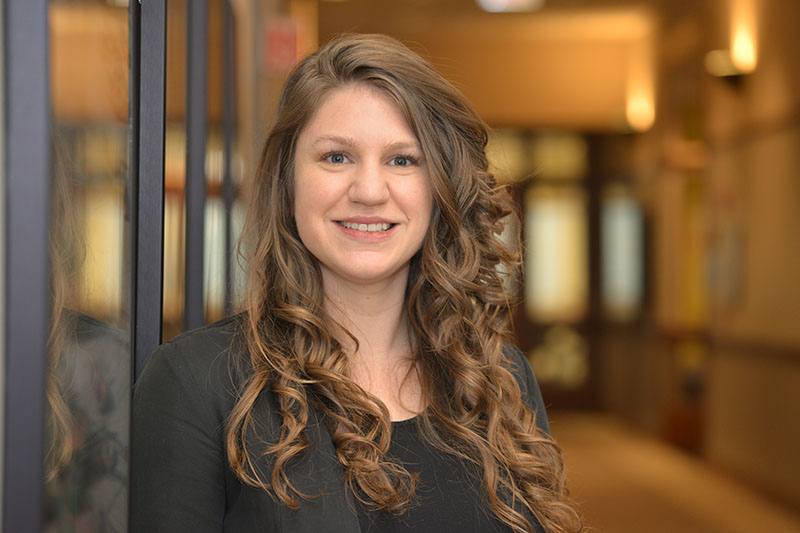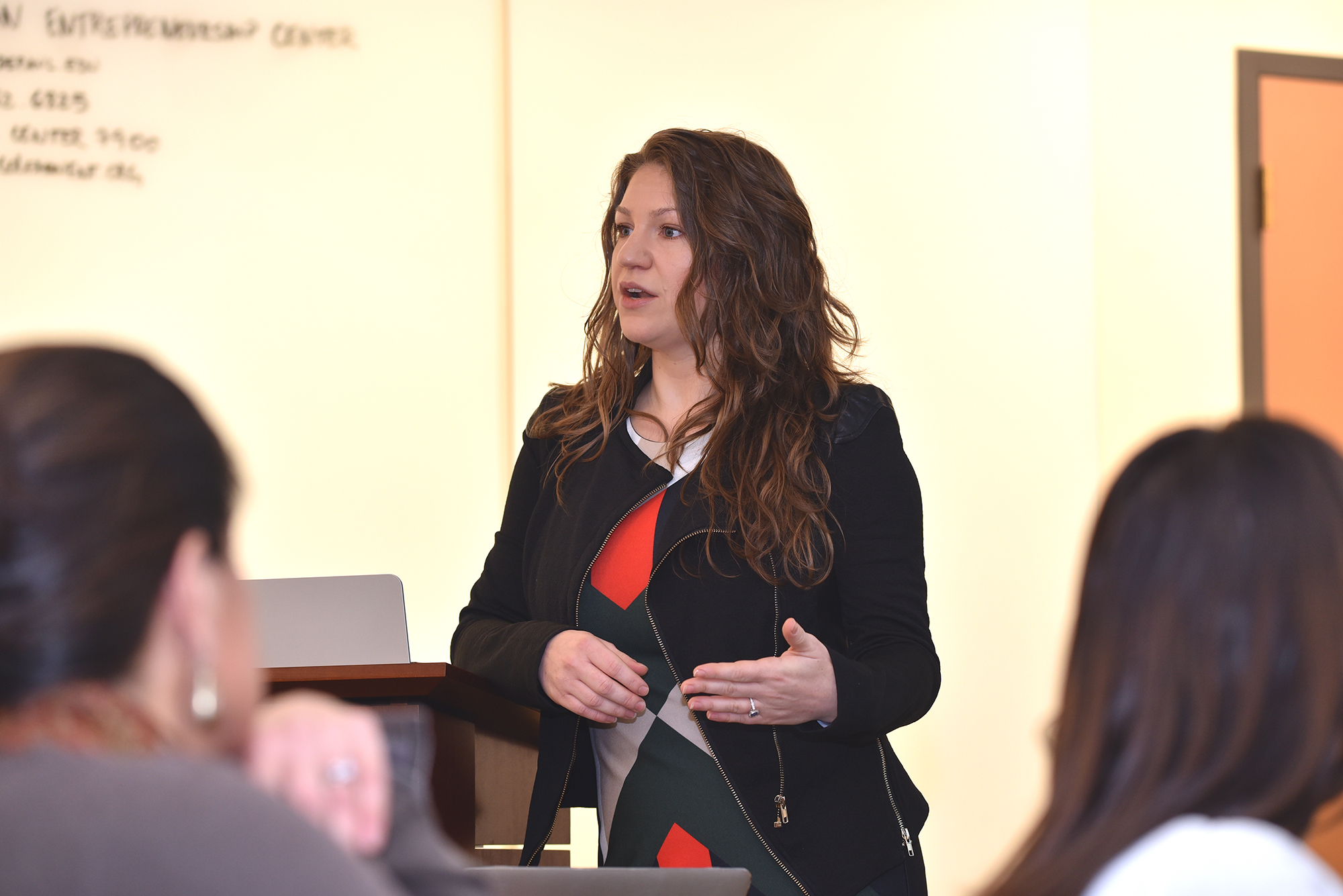 Abigail Ingram, who served as assistant director of the Coleman Entrepreneurship Center, has been named director of the Women in Entrepreneurship Institute at DePaul.
Abigail Ingram, who served as assistant director of the Coleman Entrepreneurship Center, has been named director of the Women in Entrepreneurship Institute at DePaul.
Abigail Ingram (MA ’15, JD ’18), assistant director at the Coleman Entrepreneurship Center, has been named the director of the
Women in Entrepreneurship Institute, the nation’s first comprehensive institute for women founders that integrates academic learning, research, incubation, funding and public policy.
In her new role, Ingram will oversee fundraising efforts while working with the institute’s
40 committee members – consisting of entrepreneurs and business leaders – to roll out new programming for DePaul students and alumni. One of the first programs the institute has launched is the
Business Accelerator Program
, designed and delivered by successful women entrepreneurs, which will run from spring to early summer. She also will oversee an active calendar of events, collaborate with faculty across all DePaul colleges and schools to engage with the center, and teach a business undergraduate entrepreneurship course.
In the Q&A below, Ingram discusses what she hopes to accomplish and why an institute supporting women entrepreneurs is needed now more than ever.
How will your experience as assistant director at the Coleman Center influence your new role?
There’s a lot of
Coleman Center programming that serves our student and alumni population. The fact that we have another person working out of the center and specifically helping with some of the issues with women starting businesses means we can offer more programming for our female students and all of our students. I understand the issues our students are facing because I’ve worked with so many student companies. One missing piece has been an in-house accelerator program, so that’s the very first thing the institute will be rolling out. Those students can go from idea or early-stage business to launching and scaling that business while they’re in school. We also invite DePaul alumni and friends of DePaul to take advantage of our programming.
What’s in store for the Women in Entrepreneurship Institute?
 In April, the Women in Entrepreneurship will begin running the Business Accelerator Program, which is designed and delivered by successful women entrepreneurs.
In April, the Women in Entrepreneurship will begin running the Business Accelerator Program, which is designed and delivered by successful women entrepreneurs.
We currently have DePaul faculty members who are working on a white paper series and will lend their expertise to testing the efficacy our Acceler8Her model at every stage. We are entrepreneurs, and we know the value of testing for what works and adjusting for maximum impact. Faculty members Jaclyn Jensen, Grace Lemmon, Alyssa Westring and Paul Sanchez-Ruiz will explore factors contributing to the success of entrepreneurial ventures, specifically identifying and overcoming the biases and barriers that affect women and entrepreneurs of color.
Beyond the research elements, we’re starting off with an accelerator program. Many universities experience high rates of attrition among their female students and alumni. We brought the Women in Entrepreneurship Institute committee members together and we began talking about what success looks like for the institute. Based on everyone’s priorities, it was clear that starting with an accelerator/incubator program was the best way to go.
We also had a brainstorming session in which we laid out lists of our priorities, all the elements that had to be present in an impactful accelerator and what has to be taught, and then we started ordering the topics and modules to create the programming. How we’re designing Acceler8Her is based on what women who have been in that exact process know that the next generation of women will need.
How is this accelerator program different other accelerator programs throughout the country?
Most of the time, accelerator programs begin with validation. You talk about the problem that you’re trying to solve and why the business that you’re proposing is the best solution to that problem. The programming considers who is your market, what is the market segmentation, what is your revenue model, what are all of the different revenue streams that you can build in, and that’s when you can start getting into your business plan. Our accelerator program will include a lot of these same pieces.
What we know women are going to need especially is a really strong mentorship program – access to a variety of mentor teams made up of women who have the networks to help support nascent companies – as well as leadership training. Studies show that leadership is the No. 1 predictor of entrepreneurial success. It’s also most likely a piece that women are missing because we are often not socialized to be leaders the way that men are, or given the number of opportunities to lead.
Why do you think an organization like the Women in Entrepreneurship Institute is important?
During one of our strategic planning meetings, we asked the committee to describe why the institute is important. The No. 1 item that kept coming back was the idea of fairness and the fact that it is much harder to start, grow and capitalize a business as a woman than as a man. We know that the ROI on female-founded businesses tends to be higher than on male-founded businesses. We also know that there is nothing inherent in women that makes us less likely to run a successful business, but there are barriers put up to stop us from accessing success. If we can simply remove the roadblocks that are preventing us from being successful and follow a path of launching and scaling a business, be profitable, and add to the GDP, that’s really the motivation.
If you have any sort of business idea that pertains to women or the spheres of influence women traditionally move within (for example, family or childcare), many funders don’t want to talk about it. Women operate as a “niche market,” but we’re more than half of the population. We are a hidden majority of people. Now if you take that hidden majority of people and empower them to start and run businesses, you’re going to see the GDP double. You’re going to see an explosion of growth of job creation and opportunities for everyone will be more numerous and more impactful.
Learn more about: